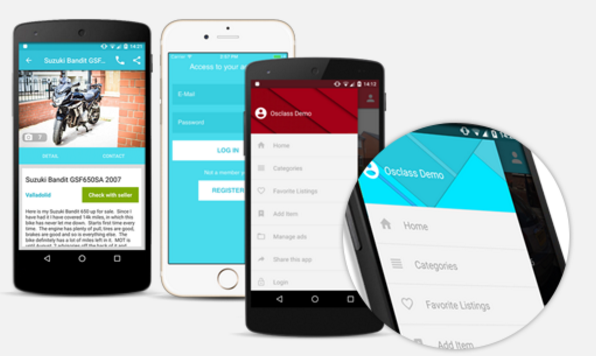50% of apps are now hybrid according to Gartner’s estimates.
Cross platform apps, as the name suggests works through several platforms breaking the hardware barriers set by highly fragmented smart devices and the software related technical intricacies specific to the operating systems that power these devices.
Cross-platform app development or hybrid apps are the glimpses of hope towards unifying everything right from development, upkeep, backend operations in the existing mobile ecosystem that’s highly scattered.
Prime factors that convince businesses to go for cross platform app development
Reduced cost 2. Time-to-market. Take any budding or established business which has not stepped into the mobile app arena and these two requirements would be the same with all irrespective of their type and size.
- Reduced cost
Reduced cost is beneficial from a business’s’ perspective. Not only that, cross-platform mobile app development benefits on a longer run in terms of maintenance, upkeep, backend infrastructure and much more.
- Time-to-market
Time-to-market is a competitive edge which businesses seek to leverage on. Either a competitor is already has a mobile app or is gearing up in full speed to storm into the digital medium. So, for brands, especially retailers, mobile apps have to be ready in quick time.
In case of organizational level mobile apps requirements for internal purposes like improving operational efficiency, team collaboration etc, the requirement is almost immediate and taking loads of time won’t be an option to consider.
So, in both concerning cases, cross-platform app development poses as a better option to consider.
Adding to these, there are other future prospects while deciding to build iOS, Android and Windows apps using cross platform app development.

The concepts and codes are being re-used giving developers more time to come up with other departments that might turn the app technically sound. Cloud based deployments are much easier to perform and reduces the infrastructure requirements.
While creating iOS, Android and Windows apps through native app methods, business expect a consistent experience so that the brand experience is uniform along all the platforms and across all devices a customer accesses the brand from. Uniformity in UI, UX and in creating a solid brand image.
From the earlier stages till date, there are certain limitations in cross platform mobile app development due to the totally native attributes of iOS, Android and Windows platforms but thanks to the advancements in tools such as Appcelerator, PhoneGap, Xamarin, that are advancing day by day to render a great narrow down the limitations. Here are short highlights such cross platform masterpieces.
Appcelerator: Hybrid app development platform for iOS, Android and Windows that facilitates native app building with mobile analytics.
PhoneGap: One of the frontiers in iOS and Android cross platform app development which is preferred for building HTML and Java based apps.
Xamarin: Requires, coding skills in C#. Uses C# codebase and provisions code-sharing functionality on multiple platforms.
Kinvey: Kinvey is a cloud based mobile backend as a service (mBaaS) for building enterprise-grade and mission-critical apps.
Dropsource: An advanced tool for iOS and Android cross platform app development. It automates the source code programming. Easy for building function prototypes.
So, that’s a glimpse of some of the best platforms and tools available in the market for cross platform iOS & Android app development. These platforms have improved cross-platform app development prospects in multiple angles.
These platforms seems highly advantageous but one gets to reap the real benefits only when the development is executed perfectly. Mistakes in implementation and too much of customization can cause turn the single code base highly incompatible with native operating systems resulting in faulty apps.
For this, you need to go for a trusted app development company that’s well seasoned in developing cross platform apps. When such technical expertise gets into apps, the benefits are going to be even bigger and better.



Be the first to comment on "Will cross-platform mobile app development become a norm soon?"